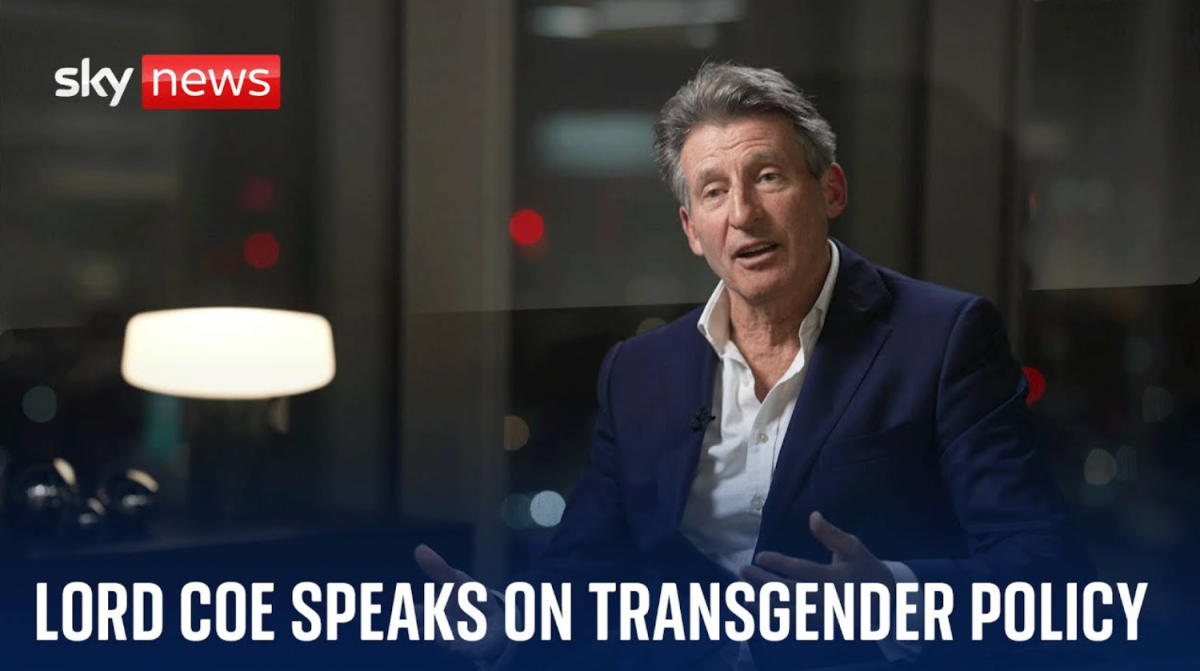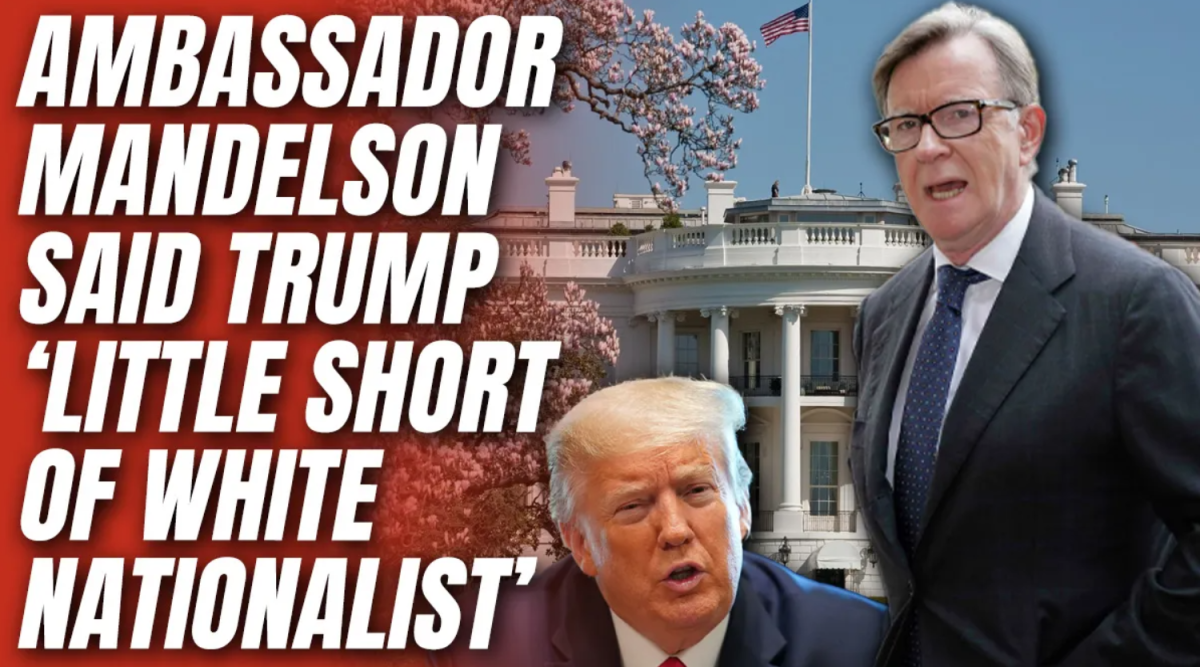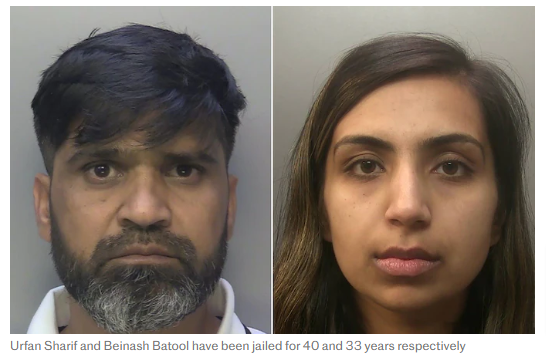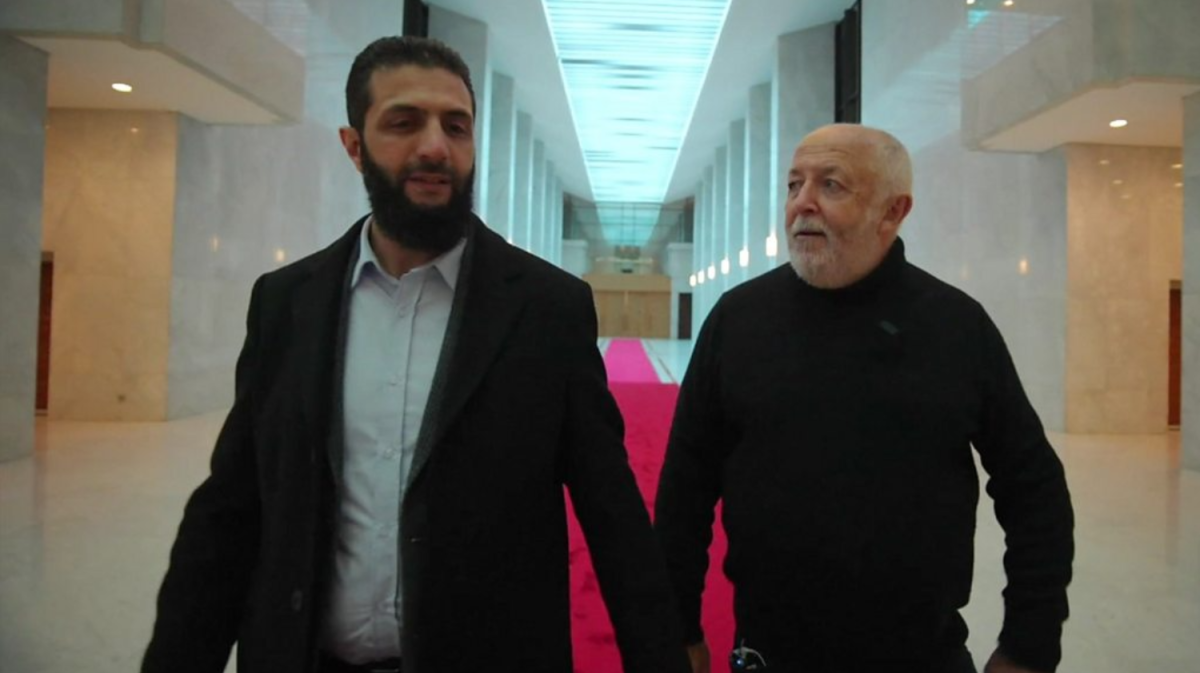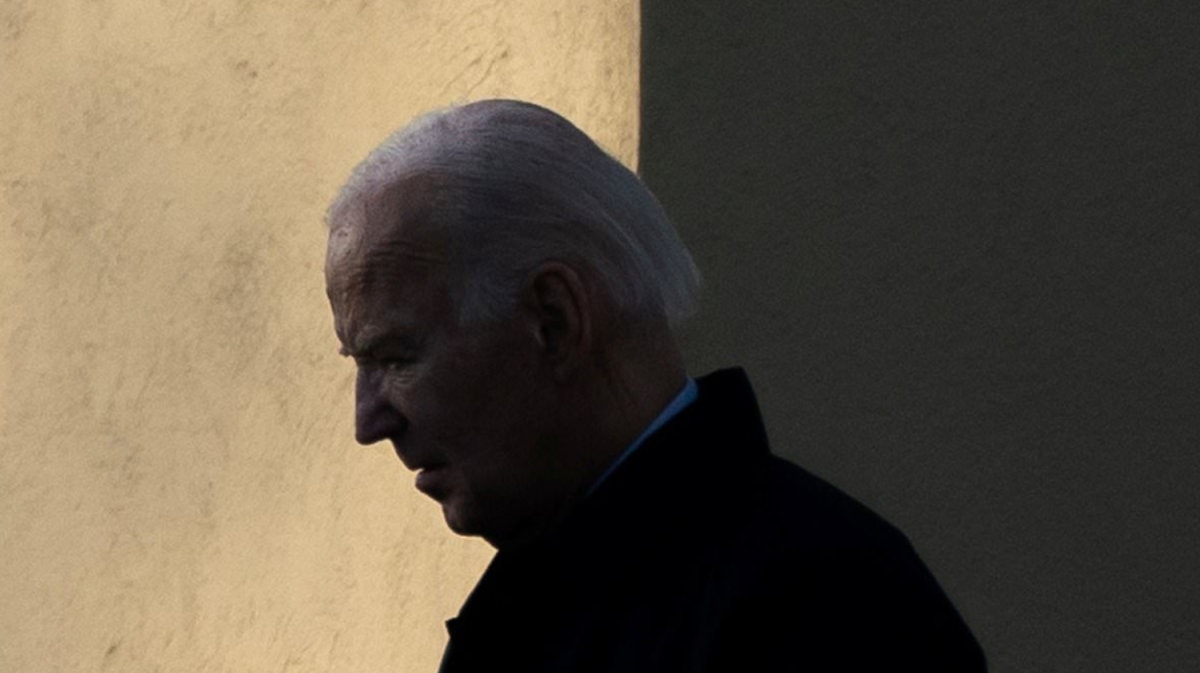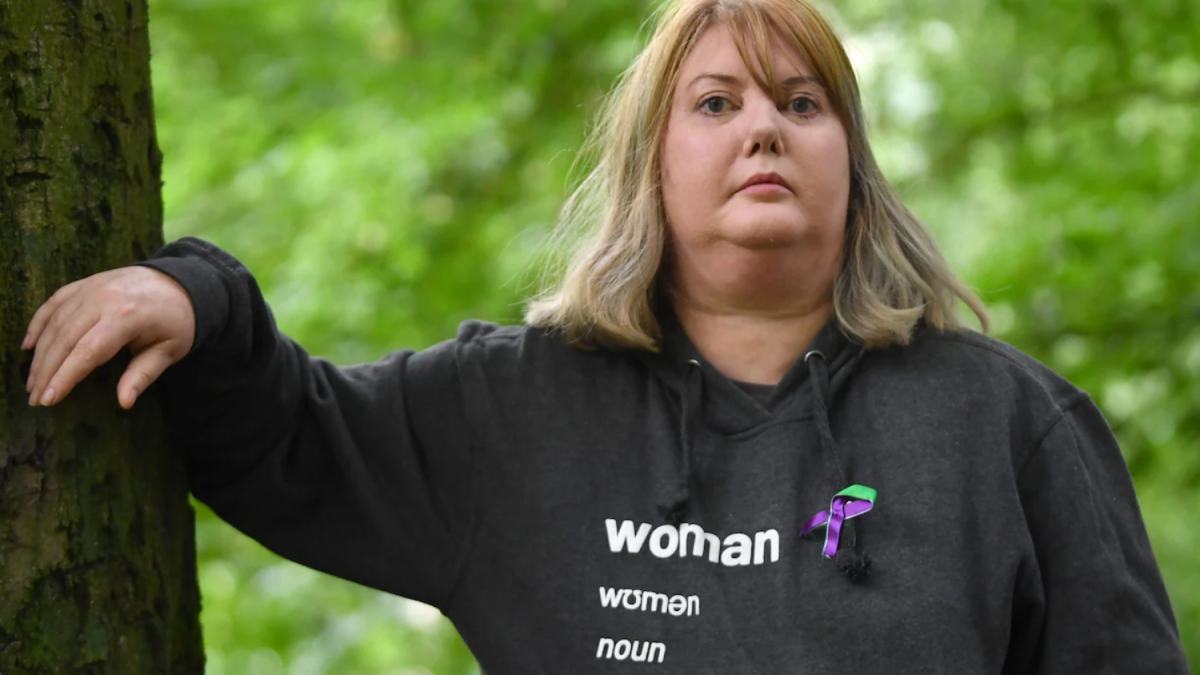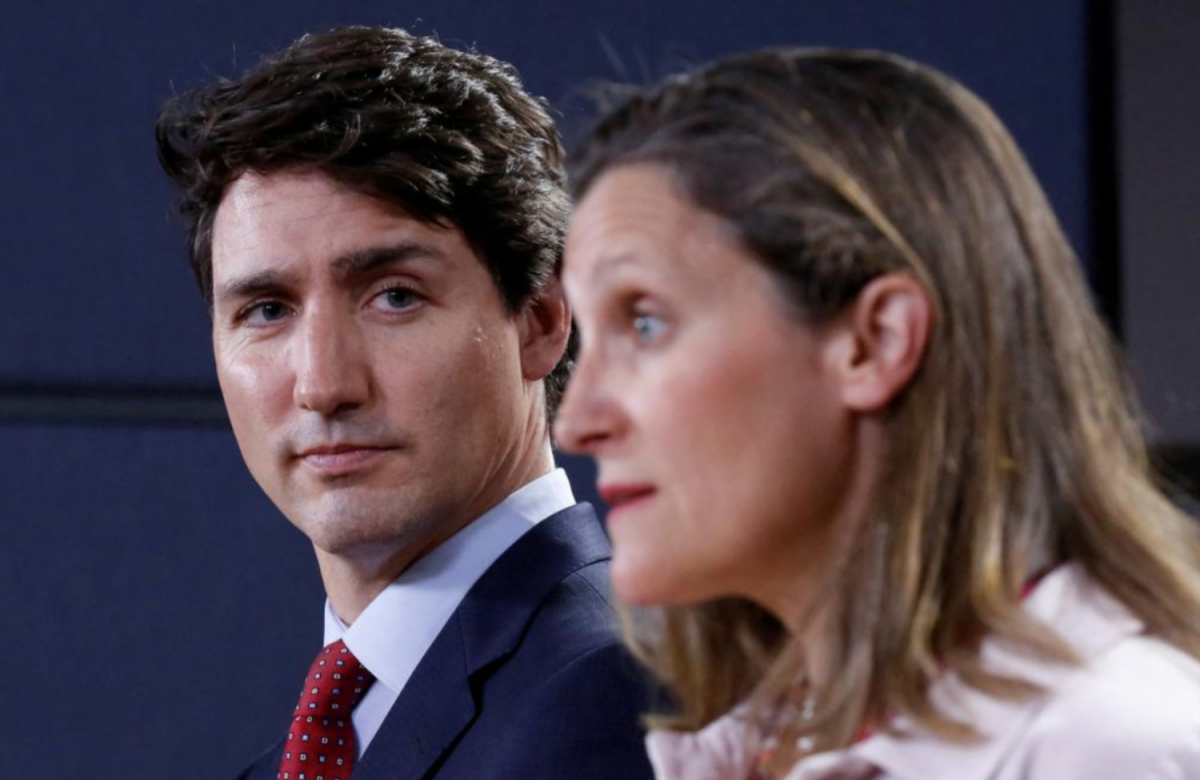-
Posts
10,807 -
Joined
-
Last visited
Content Type
Events
Forums
Downloads
Quizzes
Gallery
Blogs
Everything posted by Social Media
-
Sebastian Coe, renowned for his leadership of the 2012 London Olympics, has pledged to prioritize the integrity of women’s sports should he become president of the International Olympic Committee (IOC). Coe, one of seven contenders for the role, emphasized his commitment to implementing "science-based policies that safeguard the female category" during the announcement of his candidacy. In a conversation with Sky News, Coe confirmed his intention to explore a potential ban on transgender women competing in women’s Olympic events if he is elected. "We’ve taken the lead at World Athletics, as you know, and I think for me the principle is very clear," Coe stated. Referring to controversies at the Paris Olympics, Coe remarked, "If you have a vacuum around this policy position, then you end up with some of the things that we witnessed in Paris," a pointed reference to Imane Khelif, whose gold medal win in women’s boxing became contentious after a failed gender eligibility test. Coe underlined the importance of collaboration in shaping these policies. "I would have a very clear policy that would be unambiguous, clear-cut, but co-curated with all those stakeholders—so that it is relevant to the athletes, sport scientists, the national Olympic committees, the international federations. And they’re telling me that they want to be part of that journey," he explained. As the current president of World Athletics since 2015, Coe has already spearheaded restrictions on male-to-female transgender athletes and tightened rules regarding athletes with differences in sex development (DSD). His approach aligns with that of other international sports federations, such as swimming, which have adopted similarly restrictive policies. While Coe’s stance has drawn support from some, others have raised concerns about its implications for the transgender community. Balancing fairness in competition with inclusivity remains a polarizing issue. Juan Antonio Samaranch, a fellow IOC presidential candidate and current vice president, echoed the need for clarity but stopped short of endorsing a blanket ban. "We must do better," Samaranch told Sky News. "We need to find the scientific parameters that can help us put in a decision that affects everybody." Another candidate, Johan Eliasch, president of the International Ski Federation, argued for a unified policy across sports. "The IOC should lead the way, establishing a simple and clear policy to ensure a fair and safe environment for all athletes, particularly women," Eliasch wrote in his manifesto. In contrast, David Lappartient, head of World Cycling, advocated for a nuanced approach that respects the complexities of the issue. "It is a complex matter that must be dealt with rationally to strike the right balance between the need to respect human rights and the obligation to ensure fair competition," he wrote, emphasizing the need for solid scientific evidence. Not all candidates have addressed the issue in detail. Prince Feisal al Hussein of Jordan, Morinari Watanabe of the International Gymnastics Federation, and former Olympic swimmer Kirsty Coventry from Zimbabwe have largely refrained from proposing concrete measures. Coventry’s manifesto briefly mentions "strengthening women’s sports by protecting female athletes" without elaboration. Based on a report by Sky News 2024-12-21
-
Alan Edward, a 55-year-old neo-Nazi from Redding, Falkirk, has been sentenced to 10 years in prison after police uncovered an arsenal of weapons in his home and evidence of his intention to carry out a terror attack against an LGBT group. Edward’s plans came to light during an investigation that revealed his extremist ideology and communication detailing violent threats. In September 2022, armed officers from Police Scotland raided Edward’s residence, seizing an alarming cache of weapons that included a crossbow, machetes, a tomahawk, a samurai sword, knuckledusters, an extendable baton, a stun gun, and a variety of knives—some adorned with Nazi and SS insignia. Additional items recovered included an air pistol, a skull mask resembling SS regalia, goggles, a respirator, hardened-knuckle gloves, and hunting tips for crossbow arrows. Prosecutors referred to the collection as an “armoury,” indicative of his dangerous intent. Edward’s violent ambitions were discovered through a series of WhatsApp messages where he discussed targeting an LGBT group in Falkirk. Among his chilling remarks, Edward stated, “They have been pushing their luck for years, now they will pay in blood.” He also suggested carrying out the attack masked, saying, “We should get masked up and go do a few of them in at their little gay club.” The court heard further evidence of Edward’s neo-Nazi ideology, including a document on his computer referring to Anders Breivik—the far-right extremist responsible for killing 77 people in Norway in 2011—as “Saint Anders.” Police Scotland’s Operation Lightbox investigation revealed that Edward had posted and shared racist, homophobic, and violent content online, along with materials associated with extreme right-wing groups. Detective Superintendent Stephen Clark, head of counter-terrorism investigations at Police Scotland, described Edward’s actions as an effort to spread fear and hatred. “Edward shared extreme racist and homophobic content online with the aim of stirring up hatred and spreading fear and alarm,” Clark said. Edward first drew the attention of counter-terrorism officers when he posted a video of a National Action rally in 2016, shortly before the group was banned in the UK under the Terrorism Act. His online activity continued over several years, as he disseminated videos, memes, and images supporting neo-Nazi ideologies. Former Police Scotland superintendent and counter-terrorism expert Martin Gallagher emphasized the gravity of Edward’s potential threat, noting his idolization of Breivik. “I would not put someone who is acting alone on a different level from a group—they can be just as deadly,” Gallagher remarked. The case has left many shaken, with Christopher Clannachan of the Equality Network calling it “very frightening.” He highlighted the need for vigilance in combating the spread of extremist views that target marginalized groups. Edward’s sentence underscores the ongoing threat posed by far-right extremism and the importance of robust counter-terrorism efforts to prevent such individuals from carrying out acts of violence. Based on a report by Sky News 2024-12-21
-
Lord Peter Mandelson, a prominent Labour peer and architect of New Labour under Tony Blair, faces renewed scrutiny over his past criticisms of Donald Trump as he prepares to assume the role of British ambassador to the United States. His appointment by Prime Minister Sir Keir Starmer comes as Trump readies his return to the White House for a second term. In 2019, Lord Mandelson spoke candidly about his views on Trump during an interview with Italian journalist Alain Elkann. He described the former president as “a danger to the world” and “little short of a white nationalist and racist.” These remarks, made on Elkann’s podcast, now risk complicating efforts by Downing Street to build a positive relationship with the Trump administration. In the interview, Mandelson lamented the United Kingdom’s shift in global alliances, stating, “I wake up today and discover that not only am I seeing my country, which I love, being forced out of its own European neighbourhood, but is crossing the Atlantic to make common cause with an American president who is little short of a white nationalist and racist.” He expressed deep concern over Britain aligning itself with Trump, emphasizing, “This disturbs me greatly because it’s completely different from all my upbringing, whether my family or in politics, what I believe, and the identity I see for my own country.” Mandelson also criticized Trump’s approach to governance and diplomacy, arguing that his values are incompatible with those of the UK. “What Donald Trump represents and believes is anathema to mainstream British opinion,” he said, adding, “Even those who have a sneaking admiration for Donald Trump, because of the strength of his personality, nonetheless regard him as reckless and a danger to the world.” The Labour peer pointed to instances where Trump insulted British leaders and institutions, including the treatment of Her Majesty’s ambassador in Washington. “The way in which he has conducted himself in relation to the British government, our Prime Minister, who he has insulted, and the way in which he treated Her Majesty’s ambassador in Washington has been shocking to British people,” Mandelson remarked. Despite these past statements, Mandelson’s appointment is viewed as a strategic move by Starmer to signal a serious approach to engaging with the Trump administration. The decision bypassed other high-profile candidates, including David Miliband, Baroness Amos, and Baroness Ashton, reflecting Starmer’s confidence in Mandelson’s experience and political acumen. Trump’s endorsement of Nigel Farage for the ambassadorship in an autumn tweet added further intrigue to Mandelson’s selection. Farage, the leader of Reform UK, has been a vocal supporter of Trump, but his nomination was not entertained by Downing Street. Mandelson’s tenure begins at a critical time, with the UK navigating the threat of US tariffs on British exports and seeking to expand its services sector across the Atlantic. His ability to reconcile his past criticisms with the demands of fostering a constructive relationship with the Trump administration will be a key test of his diplomatic skills. As Trump resumes his role as president, Mandelson’s comments from 2019 serve as a reminder of the challenges that lie ahead in mending strained transatlantic relations. Based on a report by Daily Telegraph 2024-12-21
-
The judge at the center of a contentious anonymity ruling in the tragic Sara Sharif case claimed that the media could not be trusted to report matters fairly, sparking intense debate over the principles of open justice. Urfan Sharif, 43, Sara’s father, and her stepmother, Beinash Batool, 30, were recently sentenced to life imprisonment for the 10-year-old’s murder. Following their trial, details of a family court decision that allowed Sara to remain in her parents' care despite warnings of potential abuse came under scrutiny. Mr. Justice Williams permitted the publication of information about the family court proceedings but prohibited the identification of the judges involved. He argued that such disclosure could provoke harassment in the digital age, citing the risk of a "lynch mob" mentality fueled by social media. "Experience regrettably shows that some reporting is better than others and that is not a reliable end point," he stated, acknowledging that while many media outlets report responsibly, others do not. His ruling revealed that during prior family court proceedings, Surrey County Council raised repeated concerns about Sara's vulnerability to physical and emotional abuse by her parents. However, allegations were never adequately tested in court, and Sara was returned to her father and stepmother in 2019. Tragically, she was murdered in their home in Woking, Surrey, in August last year. Mr. Justice Williams defended his anonymity decision, asserting, "The responsibility for Sara’s death lies on her father, her stepmother, and her uncle, not on social workers, child protection professionals, guardians, or judges." Nonetheless, his decision is now being challenged by several media organizations, including *The Telegraph*, with an appeal scheduled for January 14 and 15 in the Court of Appeal. Media groups argue that concealing the judges' identities undermines the principle of transparency central to public trust in the judicial system. Sir Geoffrey Vos, who granted permission for the appeal, acknowledged the issue's significance, stating, "It raises questions that are of considerable public importance, and it is in the public interest that the Court of Appeal considers them." The controversy comes amid broader debates over judicial anonymity, with other recent cases also sparking criticism. These include a ruling shielding the identity of an alleged Chinese spy barred from the UK and decisions in immigration tribunals where convicted criminals facing deportation were granted anonymity. One such case involved a Turkish crime boss, described as one of Britain’s largest heroin dealers, who avoided deportation despite a 16-year prison sentence. This growing trend of granting anonymity in high-profile cases highlights tensions between safeguarding individuals from undue harm and upholding the principles of open justice. As public and legal scrutiny intensifies, the forthcoming Court of Appeal decision in the Sara Sharif case could set a critical precedent. Based on a report by Daily Telegraph 2024-12-21
-

"Flat Earther" finally admits the Earth isn't flat
Social Media replied to connda's topic in Off the beaten track
Troll post removed @OneMoreFarang If you don't agree then just discuss or move on, no need for insults. That is not what this forum is about. Comment on moderation by the same poster also removed. Anymore of the same and time off to read the rules will be the consequence -
In a striking end-of-year press conference, Russian President Vladimir Putin admitted that Russia should have launched its full-scale invasion of Ukraine earlier, asserting that better preparation could have altered the trajectory of the conflict. Referring to the 2022 invasion, which he calls a "special military operation," Putin acknowledged with hindsight the need for "systemic preparation" before engaging in the war. Putin’s comments revisited Russia’s seizure of Crimea in 2014 and the subsequent pro-Russian conflict in eastern Ukraine, emphasizing that it took eight years before attempting a decisive move to capture Kyiv. Despite the ongoing war, Putin expressed openness to compromises, though he offered no clear vision of what these might entail. The Russian leader devoted a significant portion of the marathon session to the war in Ukraine, describing Russian forces as “heroes” who are making progress on the frontlines "every day." At one point, he presented a signed flag from Russian marines fighting in the Kursk region, a gesture seemingly aimed at bolstering national morale. I asked Vladimir Putin: “25 years ago Yeltsin handed you power & told you 'Take care of Russia.’ Do you think you have? In light of significant losses in Ukraine, Ukrainian troops in Kursk region, sanctions, inflation…” Here’s his reply. Highlighting Russia’s military advancements, Putin touted the capabilities of the intermediate-range ballistic missile Oreshnik, which was reportedly deployed in a strike on Ukraine in November. In a provocative suggestion, he proposed testing its power by targeting Ukraine, challenging Ukrainian air defenses equipped with U.S.-supplied systems to intercept it. When questioned about the missile's name, Putin smirked and replied, “Honestly, no idea. No clue.” The theme of Russian sovereignty featured prominently throughout the conference. Putin framed reduced reliance on international partnerships—largely a consequence of Western sanctions—as a key achievement of the war. He praised the resilience of Russia’s economy, citing higher growth rates compared to nations like Germany. However, he acknowledged challenges, including inflation at 9.1%, which he described as “alarming.” Analysts suggest that the economy is overheating and increasingly reliant on military production, often referred to as the "military-industrial complex." Putin also touched on relations with U.S. President-elect Donald Trump, revealing that the two had not spoken in four years but expressing willingness to meet “if he wants it.” When pressed on whether he was in a weaker position compared to Trump, Putin humorously quoted Mark Twain, saying, “The rumors of my death are much exaggerated,” eliciting laughter from the audience. As the conference unfolded, it became clear that Putin remains committed to his strategic goals in Ukraine, framing the conflict as a test of Russian strength and sovereignty. His remarks offered a glimpse into his unwavering stance, signaling a long road ahead in the conflict with Ukraine and its Western allies. Based on a report by the BBC 2024-12-20
-
New York City Mayor Eric Adams delivered a scathing critique of his own party in the wake of President-elect Donald Trump’s sweeping election victory. Speaking with Fox News anchor Martha MacCallum, Adams attributed the Democrats' defeat to their failure to connect with voters on critical issues, accusing them of engaging in intellectual discourse that alienated constituents grappling with real-life challenges. NYC Mayor Eric Adams on Democrat party messaging failures: "We stopped speaking to people and we started speaking at people. You're asking if Donald Trump is Hitler? What are you talking about?" The mayor pointed to the Biden administration’s border policies as another source of frustration, emphasizing that the chaos caused by migrant-related challenges has been mischaracterized. Addressing the issue of New York City’s sanctuary status, Adams clarified the policy’s intent. “Sanctuary city is totally different from a manmade crisis that we saw,” he stated. Adams explained that sanctuary city policies aim to protect law-abiding residents and asylum seekers as they pursue legal status, not to provide cover for criminal activity. “We’re saying that, as a sanctuary city, if you are here and you are participating legally, you are provided the services as you start your pathway to get citizenship or legal status,” he said. “But it is not a safe haven for those who are committing criminal acts or trying to harm migrants, asylum seekers, and other New Yorkers.” Recently, Adams suggested he may use executive powers to address violent criminal migrants, including deportation after charges are filed but before convictions. Defending his record, Adams highlighted his focus on public safety and his controversial decision to invest in cryptocurrency, both of which he claimed vindicated his vision for the city. “When I first started, I said I was going to invest in cryptocurrency, people laughed at me. Who’s laughing now?” he remarked. On public safety, he added, “When I first got elected in 2022, I told the party it’s public safety. People are tired of the revolving door, where people are constantly committing violent crimes and back on our streets. We ignored it.” Adams’ remarks come amid personal challenges, including federal corruption charges he is currently facing. Notably, Trump recently stated he might consider pardoning Adams, saying, “he was treated pretty unfairly.” The mayor’s comments and Trump’s surprising support underscore the shifting dynamics within U.S. politics, as leaders from both sides of the aisle grapple with voters' mounting frustrations over public safety, affordability, and immigration. Based on a report by NYP 2024-12-20
-
In the early hours of Wednesday morning, a suspected arson attack struck Congregation Beth Tikvah in Montreal, marking the second time the synagogue has been targeted in just over a year. Emergency responders, including police and firefighters, arrived at the scene around 3 a.m. to combat the flames inside the synagogue. Investigators discovered that the synagogue's front window had been smashed and an incendiary device placed inside. Fortunately, no injuries were reported, and no arrests have been made. Despite the damage, the congregation’s rabbi ensured that the morning prayers continued. “We were able to recite the morning prayers in an abbreviated way,” Rabbi Mordecai Zeitz, the synagogue's emeritus rabbi, shared with the Jewish Telegraphic Agency. “We did not close, even if we had to go outside to avoid the fires on the inside. But we had the fires of Jewish identity and Jewish pride very much front and center, in front of the charred doors of the synagogue.” Authorities have not yet classified the incident as a hate crime, but the attack comes amid rising concerns within the Jewish community. Just hours after the firebombing, another Jewish organization—the Federation CJA office—reported similar vandalism, with a window smashed in a comparable fashion. This recent attack echoes an incident from November 2023, when Beth Tikvah and the Federation CJA office were similarly targeted. That attack came weeks after the Hamas assault on Israel on October 7, a time when tensions and antisemitic incidents were notably heightened. In the previous case, an arsonist damaged Beth Tikvah’s front door, and the Federation CJA office also suffered vandalism. No arrests have been made in either case. In response to Wednesday’s attack, Congregation Beth Tikvah issued a statement emphasizing the growing dangers faced by Montreal’s Jewish community. “This is a terrifying reminder that Montreal is increasingly unsafe for Jewish people,” the statement read. It further criticized leadership at various levels for failing to hold accountable those perpetuating hate and violence in Canadian society. Canadian Prime Minister Justin Trudeau condemned the attack, describing it as antisemitic. “This vile antisemitic attack against Montreal’s Jewish community is cowardly and criminal,” Trudeau stated on social media platform X. Israel’s President Isaac Herzog also weighed in, urging Canadian authorities to take a firm stand. “Act decisively, and show that such hatred will not be tolerated,” Herzog appealed. As the investigation continues, the attacks serve as a stark reminder of the challenges facing Jewish communities in Montreal and beyond. The call for decisive action from leaders grows louder, as incidents of hate and violence threaten to undermine community safety and unity. Based on a report by NYP 2024-12-20
-
Rachel Reeves has come under sharp criticism following her claims about Labour’s economic management, with accusations of misleading the public over her handling of national insurance and the broader economy. Former Bank of England official Andrew Sentance branded her statements as an "outright falsehood" amidst rising inflation and signs of economic strain. The controversy centers on Ms. Reeves's assertion that her recent Budget safeguarded "working people" by avoiding increases to their national insurance. However, her policy included a £25 billion increase in employer national insurance contributions, drawing the ire of business leaders and economists alike. Mr. Sentance, who previously served on the Bank of England’s Monetary Policy Committee, challenged her claims, stating, “How can the Chancellor say this with a straight face? It is an outright falsehood. Businesses and economic forecasters have made clear that higher employer NI means higher inflation and a bigger wage squeeze for working people.” The criticism came as inflation figures for November revealed a rise to 2.6 percent, the highest in eight months, further straining household budgets. This development is seen as jeopardizing hopes for a swift recovery, with some experts suggesting Labour’s economic measures are contributing to stagnation. Adding to the economic unease, UK manufacturing has taken a hit, and retailer Shoe Zone announced store closures, citing the increased costs imposed by the Budget. Shoe Zone pointed to the hike in employer national insurance rates and a lowered income threshold, which made some operations "unviable." Retail and hospitality sectors, which often employ lower-paid or part-time workers, have been particularly hard-hit. Kate Nicholls, chief executive of UK Hospitality, echoed these concerns, stating, “We urgently need the Chancellor to rethink these changes to protect businesses and team members.” The economic challenges extend beyond specific industries. Domestic business confidence has plunged, with reports of project cancellations and declining orders. Ben Jones, lead economist at the Confederation of British Industry (CBI), noted, “Domestic business confidence has collapsed in the wake of the Budget, which has increased costs and led to widespread reports of project cancellations and falling orders.” In response to these pressures, the Bank of England is expected to hold interest rates at 4.75 percent, disappointing millions of borrowers hoping for relief. Hopes for substantial rate cuts in 2025 have been scaled back, with current projections indicating only two potential reductions instead of the previously anticipated four. Sanjay Raja, chief UK economist at Deutsche Bank, observed, “The MPC is some way away from declaring victory on inflation,” and warned that businesses may raise prices further to offset the impact of the national insurance hike. Britain’s economy, once the fastest-growing among G7 nations earlier this year, has slowed dramatically, with GDP contracting in November. Inflation, which had fallen to 1.7 percent in September, has reversed course, climbing for two consecutive months. As economic headwinds grow, critics argue that the Chancellor’s policies risk plunging the UK into stagflation, where economic growth stagnates while inflation persists. The coming months are likely to test the resilience of both businesses and households as they grapple with the consequences of these fiscal decisions. Based on a report by Daily Mail 2024-12-20
-
Syria poses no danger to its neighbors or the Western world, according to Ahmed al-Sharaa, the de facto leader of the country. In a candid interview with the BBC in Damascus, al-Sharaa, who recently led a rapid offensive that toppled Bashar al-Assad's regime, discussed Syria’s future and the challenges it faces. "The country is exhausted by war," al-Sharaa said, emphasizing that sanctions on Syria should now be lifted. "Now, after all that has happened, sanctions must be lifted because they were targeted at the old regime. The victim and the oppressor should not be treated in the same way." Al-Sharaa, the leader of Hayat Tahrir al-Sham (HTS), has been a controversial figure. Formerly known as Abu Mohammed al-Jolani, he rose to prominence as the head of HTS, a group initially linked to al-Qaeda before severing ties in 2016. Despite its history, al-Sharaa insisted that HTS should no longer be considered a terrorist organization. "We are not a terrorist group," he stated, asserting that HTS does not target civilians or civilian areas. "In fact, we are victims of the crimes of the Assad regime." Al-Sharaa also dismissed concerns that Syria under HTS leadership would mirror Afghanistan, pointing out key cultural and societal differences. "Afghanistan is a tribal society," he said. "In Syria, we have a different mindset and traditions." On the topic of women’s rights, al-Sharaa stressed the importance of education. "We've had universities in Idlib for more than eight years," he said, highlighting that women make up a significant portion of the student body. "I think the percentage of women in universities is more than 60%." When asked about contentious issues such as alcohol consumption, al-Sharaa deferred the matter to future legal frameworks. "There are many things I just don't have the right to talk about because they are legal issues," he said. He emphasized that a "Syrian committee of legal experts" would draft a constitution, ensuring any leader adheres to the rule of law. Throughout the interview, al-Sharaa appeared calm and approachable, dressed in civilian clothing. He made consistent efforts to reassure skeptics who believe HTS has not fully abandoned its extremist roots. However, skepticism among Syrians remains high. Many are unconvinced by al-Sharaa’s promises and await the actions of the new rulers to determine the true direction of Syria. The coming months will be critical in shaping the nation’s future and proving whether the country can truly distance itself from its turbulent past. Based on a report by BBC 2024-12-20
-
Alec Baldwin has pledged to uncover the truth about the tragic incident on the set of *Rust* that claimed the life of cinematographer Halyna Hutchins in October 2021. During a candid conversation with David Duchovny on the December 16 episode of *Fail Better*, the 66-year-old actor declared his determination to share what he believes has not yet come to light. "There's more to come," Baldwin said. "But the more to come is now my effort, and it's going to be undeniably a successful effort, to raise and to expose what really happened." The incident occurred when a prop gun discharged during filming, killing Hutchins, 42, and injuring director Joel Souza. Baldwin has consistently denied pulling the trigger, maintaining that the weapon fired unexpectedly. While he initially faced involuntary manslaughter charges, the case was dismissed in July 2023 after revelations that prosecutors withheld evidence from Baldwin's defense. Baldwin expressed his frustration over how the events were portrayed. "The truth of what happened has never been told," he said, criticizing the media for allegedly misrepresenting him. "The mainstream press and the tabloid press suppressed every story that could benefit me and amplified every story that could hurt me." The *30 Rock* star also reflected on the public backlash following the incident. "When people hate you on that level, they want three things," he told Duchovny. "They want you to die. They want you to go to prison. And the third thing is they want you canceled, which is like being in prison or being dead because you roam the earth and you're invisible." Baldwin credited his wife, Hilaria, for helping him through the darkest moments. "I owe my wife everything," he shared. "She is the most spiritually ascended human being I've ever met, and she was kind to me and supportive of me. She was frustrated. She was in pain. She suffered tremendously." Though the legal case has been dismissed, Baldwin remains resolute in his mission to bring clarity to the tragedy and its aftermath. For him, revealing the full truth is not only about clearing his name but also about ensuring the events leading up to Hutchins' death are fully understood. Based on a report by Newsweek 2024-12-20
-
Counter-terrorism police in the UK are on heightened alert for potential threats posed by British ISIS supporters who may attempt to return home after being released from prisons in Syria. The uncertain future of the war-torn country has raised fears of increased extremism, prompting authorities to bolster their defenses. Vicki Evans, the national counter-terrorism coordinator, highlighted the complexity of the current terror threat, describing it as "smouldering." She noted the dangers posed by Islamic extremists, state-sponsored plots, and attacks by individuals without a clear ideological motive. "Events in Syria are certainly something that are a focus and something that all of us need to think about with our partners," she said. Evans emphasized the enduring risks from both longstanding and emerging enemies of peace. "History tells us that, unfortunately, any instability creates space for extremism, for violence and acts of terror," she explained. The recent ascent of Ahmed al-Sharaa as Syria's de facto leader and the resurgence of the rebel group Hayat Tahrir al Sham (HTS) have added to the concerns. While the UK government has engaged diplomatically with al-Sharaa, HTS remains classified as a banned terrorist organization under British law. Any overt support for the group could result in terror-related charges. Although Evans confirmed no arrests had been made in connection with HTS, she declined to disclose whether any suspects were under investigation. Another troubling trend noted by Evans is the growing presence of violent and harmful content in the online histories of counter-terrorism suspects, including children as young as 10. "It's a pick-and-mix of horror," she said, referencing the increasing prevalence of extreme violence, pornography, misogyny, and gore among those under investigation. "We most definitely need to think differently about how we stop that conveyor belt of young people who are seeing and being exposed to this type of material and, unfortunately, sometimes then going on to commit horrific acts," she added. As authorities brace for potential threats stemming from Syria's instability, the focus remains on preventing acts of terror and addressing the evolving challenges posed by extremist ideologies and harmful online influences. Based on a report by Sky News 2024-12-20
-
The UK’s elections watchdog is advocating for changes in electoral law that could prevent Elon Musk from making a substantial £80 million donation to Nigel Farage's Reform Party. This call for reform arises amid speculation that the billionaire entrepreneur is considering a significant financial contribution to transform Reform into a formidable political force. Talks between Musk and Farage reportedly took place earlier this week at Donald Trump’s Mar-a-Lago estate in Florida. Farage confirmed that “the issue of money was discussed” and indicated there would be “ongoing negotiations on that score.” Reports suggest Musk, one of the wealthiest individuals in the world, is mulling over a donation of up to $100 million (£80 million) to strengthen Reform's campaign to challenge Labour in the next general election. Musk has been an outspoken critic of Labour leader Sir Keir Starmer, particularly over his response to recent riots. According to Farage, Musk views both Labour and the Conservatives as part of a political “uniparty” and has expressed strong support for the Reform Party. Farage remarked that Musk “left us in no doubt that he is right behind us.” As a foreign citizen, Musk is barred from directly donating to political parties in the UK. However, under existing rules, he could channel funds through one of his UK-based companies. This loophole has prompted the Electoral Commission to call for tighter regulations to ensure donations from foreign individuals or entities are restricted to money generated within the UK. Electoral Commission Chief Executive Vijay Rangarajan stressed the importance of public confidence in the political funding process, stating, “It’s crucial that UK voters have trust in the financing of our political system, so they need to see how parties and campaigners are financed and how they spend that money at elections.” Rangarajan confirmed that the Commission is discussing these proposals with the government. Downing Street acknowledged that electoral law reform is under consideration, though it is not a legislative priority in the current parliamentary session. The Prime Minister’s official spokesman also emphasized Labour leader Sir Keir Starmer’s commitment to safeguarding democracy, stating that he is “committed to protecting democracy from the threat of foreign interference by strengthening the rules around donations.” With discussions ongoing, the proposed reforms could have significant implications for the future of political funding in the UK, potentially limiting the influence of wealthy foreign donors like Musk. The debate underscores growing concerns over transparency and fairness in electoral financing, as the UK seeks to protect its democratic processes from external interference. Based on a report by Daily Mail 2024-12-20
-
A seemingly ordinary Google Street View image has played a crucial role in solving a murder case in the quiet hamlet of Tajueco, located in Spain’s northern province of Soria. The image captured a man leaning over the open boot of a car, appearing to load a bulky white sack. Police later confirmed that the photo provided a vital clue in their investigation into the disappearance of a man last seen in November of the previous year. An earlier Google image also showed a person pushing a white object in a wheelbarrow, adding to the series of events pieced together by investigators. These visuals, combined with text messages and additional evidence, ultimately led to the arrest of two suspects. According to Spanish newspaper *El País*, the victim, identified as a Cuban citizen, was reportedly killed and dismembered. Police launched their investigation after a relative of the victim grew suspicious upon receiving text messages from his phone. The messages claimed that the missing man had found a new partner, planned to leave the area, and intended to dispose of his phone. However, the relative doubted the authenticity of these messages and reported his concerns to authorities. The investigation culminated in the arrest of two individuals last November: a woman said to be the victim’s partner and a man who was previously in a relationship with her. While details of the crime remain under investigation, the case is being treated as murder. The role of Google Street View in uncovering this chilling crime highlights how digital tools and technology can inadvertently assist law enforcement in solving complex cases. What initially seemed like an unremarkable snapshot of rural life ultimately exposed a harrowing truth, helping to bring those allegedly responsible to justice. Based on a report by Sky News 2024-12-20
- 1 reply
-
- 3
-

-

-
President Joe Biden is facing accusations from members of his own party of "quiet quitting," a term popularized by Gen-Z to describe the gradual disengagement from a job without formally resigning. At 82 years old, and with only a month remaining in his term, Biden has noticeably reduced his public appearances, press interactions, and overall visibility, drawing sharp criticism from Democrats and political commentators alike. During his campaign, Biden repeatedly warned that President-elect Donald Trump posed a "threat to democracy," but his rhetoric has significantly softened since the election. "It's just odd that, you know, he talked about Donald Trump being an existential threat to democracy for so long," observed Tommy Vietor, a former Obama aide and co-host of the "Pod Save America" podcast. On a recent episode, Vietor described Biden's approach as akin to "quiet quitting," a notion his fellow hosts echoed. A Politico article exploring Biden's apparent withdrawal sparked further discussion. A Democrat close to senior lawmakers voiced frustration, stating, "There is no leadership coming from the White House. There is a total vacuum." Another source noted, "In conversations that I'm having, they don't even mention the president. It feels like Trump is president already." While Trump has remained active during the transition period—holding press conferences, attending high-profile events like the Army-Navy game, and meeting with world leaders in Paris—Biden's schedule has been strikingly subdued. He has yet to hold a post-election press conference, and his interactions with the press have been sparse. On recent trips to Peru for the APEC summit and Brazil for the G20, Biden reportedly uttered only seven words to reporters, as counted by Politico. The president’s silence during these critical moments has allowed other narratives to dominate. For instance, a misleading viral video suggested he got lost in the Amazon rainforest, and reports emerged that he missed a key G20 group photo while chatting with Canadian Prime Minister Justin Trudeau and Italian Prime Minister Giorgia Meloni. Biden’s mid-week trip to Delaware further underscored his low-profile approach. On Wednesday, he marked the solemn anniversary of the 1972 car accident that claimed the lives of his first wife, Neilia, and their daughter, Naomi, by attending church services in Wilmington. According to sources, Biden's apparent withdrawal stems from two factors: his acknowledgment that public interest in hearing from him is waning and a lingering sentiment that he owes little to a party that, at times, distanced itself from him. As the end of Biden's presidency draws near, questions about his leadership and engagement have left many Democrats uneasy. Meanwhile, Trump’s increased visibility during the transition has shifted the political spotlight, leaving Biden’s critics to wonder whether he will make a more substantial public reappearance in his remaining days in office. Based on a report by Daily Mail 2024-12-20
-

Winning The Trans Debate: Balancing Victory with Integrity
Social Media posted a topic in World News
The so-called “trans wars” seem to be reaching a pivotal conclusion. In 2024, significant developments, including the Cass Review, Wes Streeting’s decision to ban prescribing puberty blockers to children, and a series of legal rulings affirming the right to uphold belief in biological sex, signaled a return to what many describe as common sense. These outcomes suggest a turning tide, one that gender-critical feminists view as vindication of their long-held positions. Public opinion has shifted dramatically. Only 30 percent of British adults now support the ability to change the sex registered on one’s birth certificate, down from 53 percent in 2019. This reversal underscores the growing skepticism surrounding trans-rights activism, which, for all its noise, has struggled to gain traction. As Right-wing populism rises in opposition to progressive pieties, people increasingly resist what they perceive as moral impositions—especially on fundamental matters like biology. For gender-critical feminists, who have faced significant opposition and personal consequences, the challenge now is to avoid the pitfalls of triumphalism or adopting the rhetoric of victimhood. Natalie Bird’s legal battle with the Liberal Democrats is a case in point. Barred from standing as an MP after wearing a T-shirt emblazoned with “Woman: Adult Human Female,” Bird sued her party for discrimination. Though the Lib Dems admitted fault, she pursued further compensation for “injured feelings,” a move that mirrors the tactics often criticized in her ideological opponents. While Bird’s actions are understandable, they risk blurring the distinctions that have set gender-critical feminists apart from their adversaries. The rhetoric of victimhood has been a hallmark of trans-rights campaigns, which have often relied on emotional appeals to counter opposition. To the victors, however, comes a different reward: the clarity and dignity of being right. Feminists have long maintained their composure under fire, and preserving this integrity is crucial even as they navigate the complexities of success. In a seemingly unrelated but equally fascinating arena, portraiture provides a glimpse into the timeless allure of vanity. Consider “The Visionary,” a 1989 painting commissioned by Donald Trump for Mar-a-Lago. Created by Ralph Wolfe Cowan, the portrait bathes its subject in celestial light, presenting an idealized version of reality. Cowan’s boast—“Nobody ever dislikes my portraits”—captures an enduring human desire for flattery. Historically, British portraiture thrived on this very principle. With the collapse of religious art markets post-Reformation, artists turned to wealthy patrons, crafting flattering depictions that emphasized grandeur over reality. Yet today, this tradition has fallen out of favor in high art, where raw, unvarnished depictions dominate. The modern disdain for self-flattering art is perhaps best exemplified by personal anecdotes. One recalls a brief romance with a man who had commissioned a Trump-like portrait of himself. Displayed prominently at the foot of his bed, the image served as a daily reminder of his aspirational self-image, ultimately dooming the relationship. Such stories illustrate how excessive self-regard, whether in activism or art, often leads to unintended consequences. Both the trans debate and the art of portraiture underscore timeless human tensions—between identity and reality, conviction and vanity. In victory or self-expression, the balance between authenticity and excess remains as vital as ever. Based on a report by Daily Telegraph 2024-12-20 -
Facebook has faced significant criticism for limiting the reach of Palestinian news outlets during the Israel-Gaza conflict, as revealed by BBC research. Analyzing Facebook data, the BBC found that audience engagement for newsrooms in Gaza and the West Bank experienced a dramatic decline, starting in October 2023. A BBC Arabic investigation highlights that prominent Palestinian-based news organizations suffered a 77% drop in engagement following the Hamas attacks on Israel on 7 October 2023. Engagement, which includes metrics such as comments, reactions, and shares, is a key indicator of the visibility and impact of social media content. During wartime, engagement is generally expected to rise as audiences seek updates. However, the opposite occurred for these newsrooms. Palestine TV, one of the affected outlets, reported a 60% drop in the visibility of its posts, despite having a substantial following of 5.8 million people. “Interaction was completely restricted, and our posts stopped reaching people,” said journalist Tariq Ziad, reflecting broader frustrations among Palestinian journalists. Many have accused Meta, Facebook’s parent company, of “shadow-banning” their content, restricting how many users can see it. Meta has denied allegations of deliberate suppression. The company acknowledged implementing "temporary product and policy measures" in October 2023, citing challenges in balancing freedom of speech while addressing the designation of Hamas as a US-sanctioned and dangerous organization under Meta’s policies. “We acknowledge we make mistakes, but any implication that we deliberately suppress a particular voice is unequivocally false,” a Meta spokesperson stated. Leaked documents suggest that Instagram, another Meta-owned platform, modified its algorithm shortly after the October 2023 attacks, intensifying moderation of comments from Palestinian users. According to an anonymous source, this algorithmic adjustment made moderation “more aggressive towards Palestinian people.” Internal communications reveal that an engineer within the company raised concerns about the change, warning it could introduce bias against Palestinian users. Meta confirmed the change but argued it was a necessary response to a surge in “hateful content” emerging from the Palestinian territories. This acknowledgment adds to the broader debate over the role of social media companies in moderating content during sensitive geopolitical events. While Meta maintains that it has not intentionally suppressed any voices, the sharp decline in engagement for Palestinian news organizations raises questions about the unintended consequences of its content moderation policies. These developments have intensified concerns among journalists and activists about the fairness and transparency of Meta’s actions in conflict zones. Based on a report by BBC 2024-12-19
-
Teenagers suspected of involvement in terrorism could face bans from online messaging platforms such as WhatsApp and Telegram as part of a new government effort to tackle the rising threat of youth radicalisation. The proposed measures, under the framework of Youth Diversion Orders, aim to prevent vulnerable young people from being drawn into extremist ideologies. Counter-terrorism police would be granted the authority to impose restrictions on the digital activities of minors deemed at risk. These restrictions would not involve a blanket ban on internet access but could prohibit visits to specific websites, online forums, or the use of messaging applications linked to radicalisation. The final decision on such restrictions would rest with the judiciary, which must determine their necessity and proportionality in managing risks. The Home Office has also confirmed that under the new scheme, officers could mandate participation in the Prevent counter-extremism programme. This initiative is designed to educate and rehabilitate individuals at risk of being influenced by extremist views. The announcement follows alarming revelations from MI5 Director General Ken McCallum about the growing number of minors engaging with "poisonous online extremism." He described the trend as "staggering," highlighting that under-18s now account for 13 percent of all individuals under investigation by security services. This issue has also drawn concern from the international intelligence community. The Five Eyes security alliance, comprising the UK, the US, Canada, Australia, and New Zealand, recently expressed alarm over the increasing radicalisation of minors, including cases where young people have supported, planned, or attempted terrorist activities. A Home Office spokesperson explained, “Police will be able to apply to the Courts for a Youth Diversion Order, permitting them—in partnership with other agencies—to intervene earlier and to impose conditions such as engagement with Prevent interventions or restrictions on online activity. The Courts must deem these conditions to be necessary and proportionate to mitigate terrorist risk.” These measures build on recommendations by Jonathan Hall KC, the Independent Reviewer of Terrorism Legislation, who has raised concerns about the decreasing age of alleged terrorist offenders. He has emphasized that many of these young individuals could be classified as vulnerable. Welcoming the initiative, Hall stated, “Good to see government statement on designing new measures to divert young people involved in terrorism away from arrest and prosecution.” His observations underline the urgent need for strategies to address this growing issue in a way that prioritizes rehabilitation over punitive action. As the government and security agencies grapple with the complexities of tackling extremism among minors, these proposed measures mark a significant step toward addressing the digital pathways that lead to radicalisation. The hope is that by intervening early and focusing on education and support, these efforts can help steer vulnerable young people away from the dangerous grip of extremist ideologies. Based on a report by Daily Mail 2024-12-19
-
At just 17 years old, Payton McNabb’s dreams of becoming a college athlete were shattered during a volleyball game that would forever alter her life. A ball spiked by a transgender opponent struck her in the head, resulting in severe injuries that derailed her athletic future. Now 19, McNabb is using her story to champion the rights of female athletes in a documentary titled *"Kill Shot: How Payton McNabb Turned Tragedy Into Triumph,"* created by the Independent Women’s Forum. “If my story can in any way help prevent this from happening to at least just one woman or girl, then it was all worth it,” McNabb told *The Post.* The incident took place in 2022 during a high school volleyball game at Hiwassee Dam High School in Murphy, North Carolina. McNabb and her teammates were aware of the transgender athlete on the opposing team but felt powerless to express their concerns. “We never thought we would ever be put in this position to begin with,” she said. “I didn’t know one person who agreed with [a transgender athlete competing against us] on my team, but we didn’t know what to do.” What began as a routine match turned devastating when the opposing player delivered a spike that hit McNabb’s head, knocking her unconscious for 30 seconds. As the gym fell silent, McNabb was rushed off the court with what initially appeared to be a concussion, neck injury, and two black eyes. “It was 100% avoidable, if only my rights as a female athlete had been more important than a man’s feelings,” McNabb reflected. The full extent of her injuries unfolded over the following weeks. Diagnosed with a traumatic brain injury, a brain bleed, partial paralysis, and permanent vision loss on her right side, McNabb also faced memory loss, confusion, and debilitating headaches. Her mother, Pamela McNabb, expressed deep regret, saying, “The guilt Payton’s father and I carry is heavy. At the time, we weren’t allowed to speak up. We couldn’t say, ‘No, she’s not playing against a boy, it’s dangerous.’” A lifelong athlete, McNabb was devastated to miss her senior volleyball season. “I had the hopes and dreams of playing college softball and I had the opportunities too, but my injury set me back, and it didn’t end up working out,” she said. “I was really depressed.” The new documentary offers a raw and emotional account of McNabb’s journey, featuring footage of the incident and interviews with her family, who speak publicly for the first time. Her mother’s message in the film is clear: “I would never, ever let her play today if I knew what I know now. Pull your kid. Don’t play. It is not worth what has happened to her to happen to anybody else’s child.” Despite her ordeal, McNabb chose to channel her experience into advocacy. In April 2023, at age 17, she testified before the North Carolina General Assembly in support of the Fairness in Women’s Sports Bill. Though stepping into the spotlight was outside her comfort zone, McNabb felt compelled to speak out for future generations. “I thought about this happening to my younger sister or, if I have kids one day, my daughter, and I seriously just cannot accept that at all,” she said. Shortly after her testimony, North Carolina enacted legislation banning transgender athletes from competing in female sports at the middle school, high school, and college levels. McNabb’s story has become a rallying cry for many, serving as a stark reminder of the importance of preserving fairness and safety in women’s sports. Her courage in turning personal tragedy into a movement for change ensures her voice will resonate far beyond the volleyball court. Based on a report by NYP 2024-12-19
-
Trey Yingst: A Reporter in the Heart of Conflict Trey Yingst, Fox News’s leading foreign correspondent, has spent the past year covering some of the world’s most brutal conflicts. His work has taken him to Ukraine, documenting the ongoing devastation from Russia’s war on the country, and to Israel, where he has reported on the aftermath of the Hamas attack in 2023. “Very quickly an audience can be overwhelmed just by the graphic nature of war,” Yingst reflected. “I’m constantly thinking to myself how can I humanize the people involved here.” His approach emphasizes not just the statistics and strategy of war but the human lives at its center, ensuring that viewers see more than just destruction. As someone who has reported from some of the most dangerous locations in the world, Yingst is no stranger to the unpredictable nature of war. “For us, safety is the number one priority,” he explained. “The bottom line is war is unpredictable.” Through his work, Yingst continues to bring clarity and compassion to the chaos of global conflict, ensuring that the stories of those impacted are told with the care and objectivity they deserve. Based on a report by The Hill 2024-12-19
-
CNN has reached a troubling milestone, hitting its lowest total day demo rating in the network’s history. Among the key 24-to-54-year-old demographic, known as “demo viewers,” CNN's audience has dropped by one percent from last year, according to data from Nielsen Media Research reported by Mediaite. Last year, the network recorded a daily demo audience of 94,000, but that number has now declined to 92,000. The network’s struggles are evident in its shrinking prime-time audience, particularly after the 2024 election. CNN accounted for just 11 percent of cable news viewers during prime time last month. Since Donald Trump’s 2016 presidential victory, the network’s prime-time viewership has plummeted by 52 percent. Currently, its prime-time demo audience averages 77,000 viewers, highlighting the steep decline. Despite the grim numbers, CNN's average total day viewership showed a slight three percent increase from last year, reaching 488,000 viewers. However, among demo viewers, CNN fared better than MSNBC but continued to trail behind Fox News. The network’s top programs, including *Anderson Cooper 360*, *The Source with Kaitlan Collins*, and *CNN News Night with Abby Phillip*, averaged just 367,000 viewers last week, as reported by Fox News. In response to these challenges, CNN’s parent company, Warner Bros. Discovery, has unveiled a significant restructuring plan aimed at addressing the network’s ratings slump and setting a course for future growth. The company announced its new operating model, which will divide its operations into two distinct divisions: Global Linear Networks and Streaming & Studios. The Global Linear Networks division will focus on television programming, including news, sports, and both scripted and unscripted content. Meanwhile, the Streaming & Studios division will center on digital platforms and fostering strategic opportunities, particularly in the entertainment sector. David Zaslav, President and CEO of Warner Bros. Discovery, expressed optimism about the changes, stating, “Since the combination that created Warner Bros. Discovery, we have transformed our business and improved our financial position while providing world-class entertainment to global audiences.” With these shifts in strategy, CNN and its parent company hope to reverse the downward trend and reestablish their position in an increasingly competitive media landscape. Based on a report by Daily Mail 2024-12-19
-
Canadian Prime Minister Justin Trudeau is under growing scrutiny and increasing calls to step down following the sudden resignation of Finance Minister Chrystia Freeland. The departure of a key ally has intensified criticism of Trudeau's leadership, with opponents claiming he has "lost control of everything." Freeland, once regarded as Trudeau’s most influential minister and nicknamed the “minister of everything,” resigned Monday, expressing deep disagreement with Trudeau’s handling of Canada’s response to potential U.S. trade tariffs under President-elect Donald Trump. In a strongly worded resignation letter shared on X (formerly Twitter), Freeland highlighted the challenges facing Canada and took aim at what she described as costly political decisions. “For the last number of weeks, you and I have found ourselves at odds over the best path forward for Canada,” Freeland wrote. She emphasized the importance of preparing for Trump’s looming 25% tariffs by maintaining fiscal discipline and avoiding unnecessary spending. “That means keeping our fiscal powder dry today, so we have the reserves we may need for a tariff war. That means eschewing costly political gimmicks, which we can ill afford,” she added. Freeland’s departure resonated deeply in the political sphere, with sources reporting that she received a standing ovation upon entering a parliamentary session following her announcement. However, her resignation has emboldened critics, particularly within the opposition. The number of Members of Parliament (MPs) calling for Trudeau’s resignation has grown significantly. According to the *Toronto Star*, at least 45 MPs have now signed a letter urging him to step aside, up from 24 in previous weeks. Conservative Leader Pierre Poilievre, a vocal critic of Trudeau, seized the moment to denounce the prime minister’s administration. “The real consequences of yesterday’s clown show are playing out in tragedies right across this country,” Poilievre remarked, as reported by the *National Post*. “Justin Trudeau has lost control of everything.” Similarly, Bloc Québécois Leader Yves-François Blanchet urged Trudeau to prioritize the nation’s stability over personal ambition. “We must put an end as quickly as possible to the very bad spectacle that we are giving internationally about the way Canada is preparing to face discussions with the Americans,” Blanchet said, emphasizing the need for decisive leadership. Both Poilievre and Blanchet are advocating for a federal election in early 2025, signaling their readiness to challenge Trudeau’s leadership head-on. The fallout from Freeland’s resignation has deepened the political crisis surrounding Trudeau, with critics citing it as evidence of an unraveling administration. Whether Trudeau can weather this storm remains to be seen, but the growing discontent within and outside his party suggests the road ahead will be anything but smooth. Based on a report by NYP 2024-12-19


